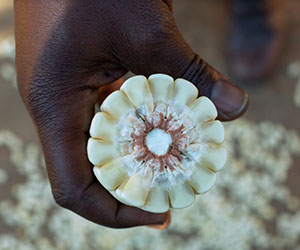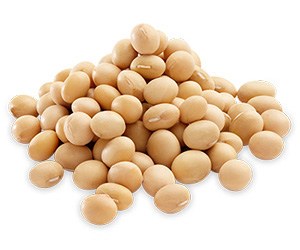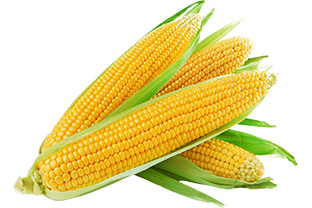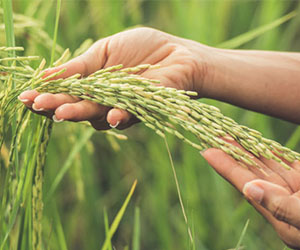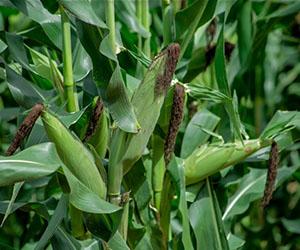Prepared By Seed Co Agronomy Desk
Drought is a recurring and devastating challenge for farmers across Africa. Prolonged dry spells can wipe out entire harvests, leading to food shortages and financial ruin. However, thanks to innovations in plant breeding, a new generation of maize seeds is empowering farmers to not only survive but thrive in unpredictable weather conditions. Seed Co’s “smart climate” varieties are at the forefront of this agricultural revolution.
Engineered for Resilience
Seed Co’s climate-smart seeds are the result of decades of research and development, specifically tailored to African conditions. They possess unique traits that enable them to withstand periods of severe moisture stress. Key features include:
- Drought Tolerance: Seed Co varieties have genetic traits that allow them to produce a significant yield even when rainfall is low and inconsistent. Unlike conventional/local varieties that would fail, these seeds can withstand mid-season dry spells without total crop collapse.
- Ultra/Early Maturity: Many of Seed Co’s climate-smart varieties have a shorter maturation cycle. This allows them to be planted later in the season or to complete their growth cycle before an expected mid-season drought hits, effectively making the most of a short rainy season.
- Deep Root Systems: These plants are bred to develop deeper and more extensive root systems. This allows them to access water from deeper soil layers, giving them a critical advantage during periods of water scarcity.
- Yield Stability: Farmers who switch to these varieties report more consistent yields from one season to the next, even with significant environmental variation. While a non-drought-tolerant variety might produce a bumper crop in a good year and a complete failure in a dry year, the smart climate varieties provide a more reliable harvest.
Note: At Seed Co, we offer a wide range of high-quality crop varieties to suit different farming needs and conditions. Our portfolio includes:
Maize Varieties:
- Ultra Early/Early Maturity: Kalulu SC 301, SC 305Kanyani SC 403, SC 423
- Medium Maturity: Mbidzi SC 555, SC 537, SC 529; Mkango SC 653, SC 665, SC 673
- Late Maturity: Njobvu SC 719, SC 729
Legumes:
- Soya Beans: SC Serenade, SC Signal, SC Saga (early to medium maturity)
- Sugarbeans: Nua-45
Other Crops:
- Sorghum: SC XH102 (Red), SC SILA (White)
- Wheat: SC Serena (Brown)
- Rice: Kilombero (Wetland), Nerica-04 (Upland)
[For more information on Seed Co Malawi products visit our website at www.seedcogroup.com/mw or download Seedney app.]
Our diverse range of crop varieties ensures that farmers can choose the best options for their specific needs and environments. The true benefit of these seeds is seen in the lives of the farmers who plant them. In areas where drought is a constant threat, studies have shown that households using drought-tolerant maize varieties from Seed Co had significantly higher yields. For example, research indicates that these varieties can outperform standard commercial varieties by 5-40% under drought conditions. In some cases, farmers have reported getting an additional 617 kg/ha of maize, which can translate to months of extra food supply for a family and profit for the business.
The Broader Economic and Social Benefits
The impact of these seeds goes far beyond a single harvest. The benefits cascade through the entire farming system and the local economy.
- Reduced Risk: Drought-tolerant seeds lower the risk of crop failure. This stability can make farmers more creditworthy, allowing them to access loans and other financial services to invest further in their operations.
- Food Security: By ensuring a more reliable harvest, these varieties directly contribute to household and whole country food security, reducing reliance on food aid and imports.
- Empowering Smallholder Farmers: The technology is “scale-neutral,” meaning it works just as effectively on a small family farm as it does on a large commercial one. This makes it an affordable and accessible tool for millions of smallholder farmers to adapt to climate change.
- Building Resilience: Ultimately, the use of Seed Co’s climate-smart varieties is not a short-term fix but a long-term strategy for building resilience in agricultural communities. It allows farmers to actively manage the risks associated with a changing climate, paving the way for a more sustainable and prosperous future.
 Malawi
Malawi Seed Co Group
Seed Co Group Angola
Angola Botswana
Botswana DRC
DRC Kenya
Kenya Nigeria
Nigeria South Africa
South Africa West & Central Africa
West & Central Africa Tanzania
Tanzania Zambia
Zambia Zimbabwe
Zimbabwe
